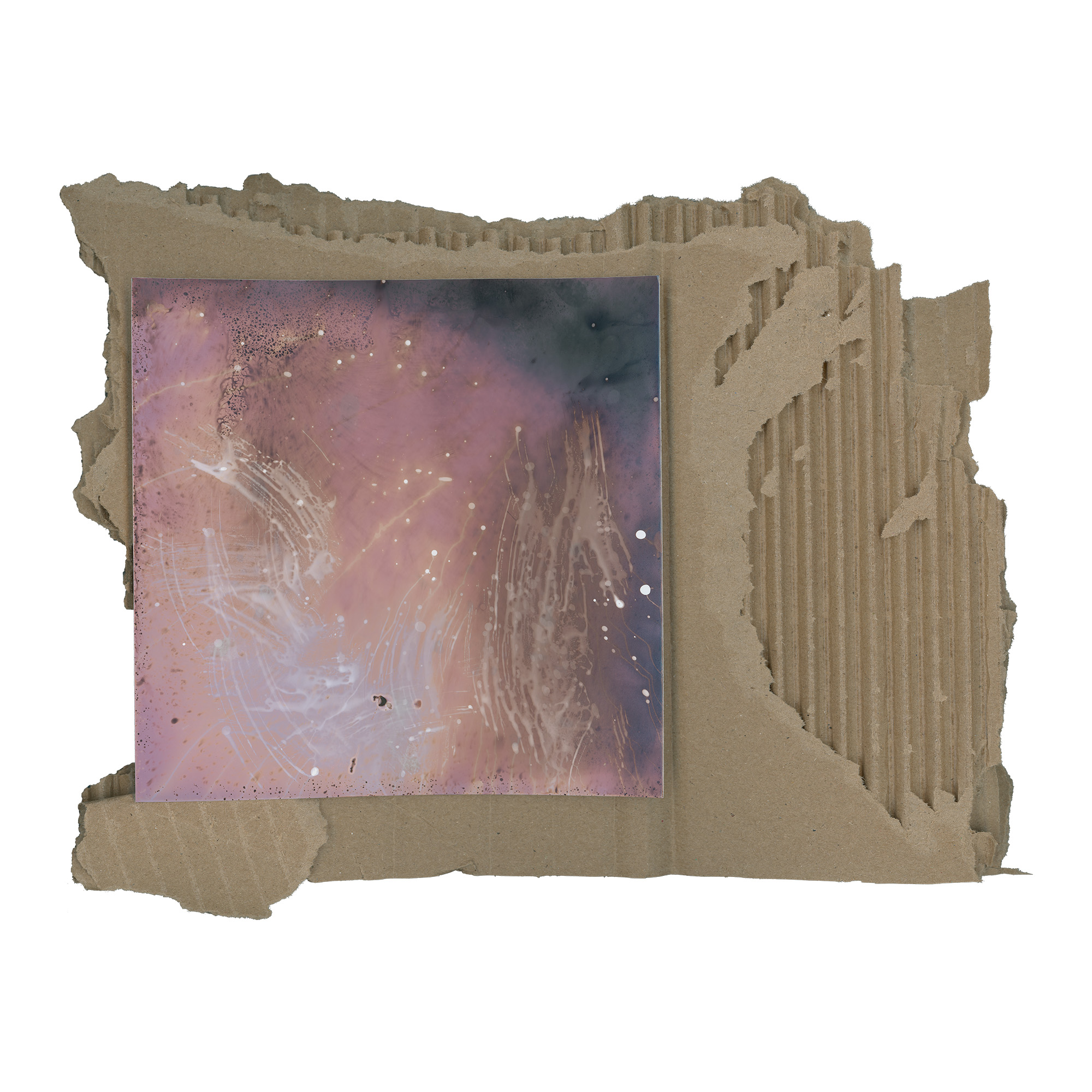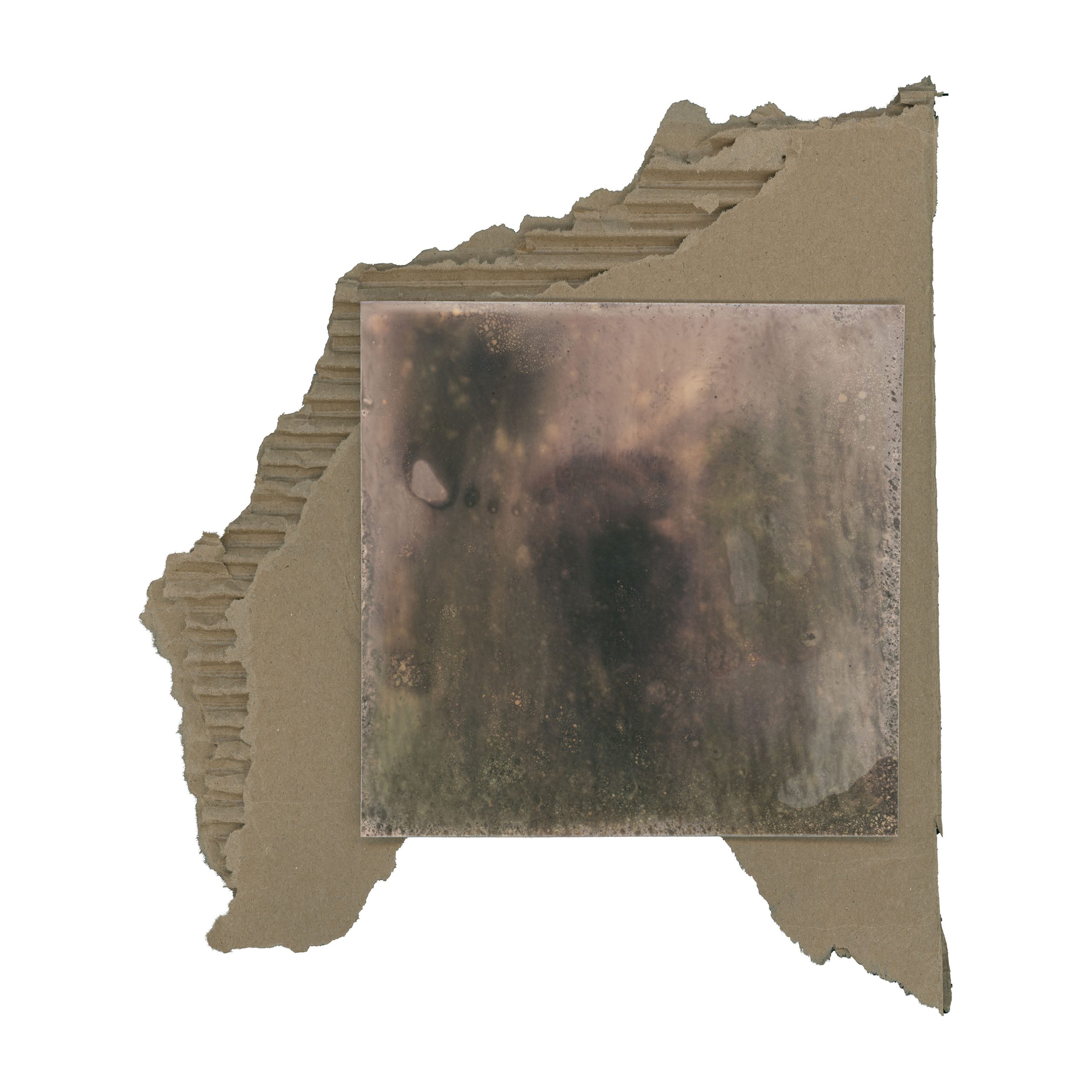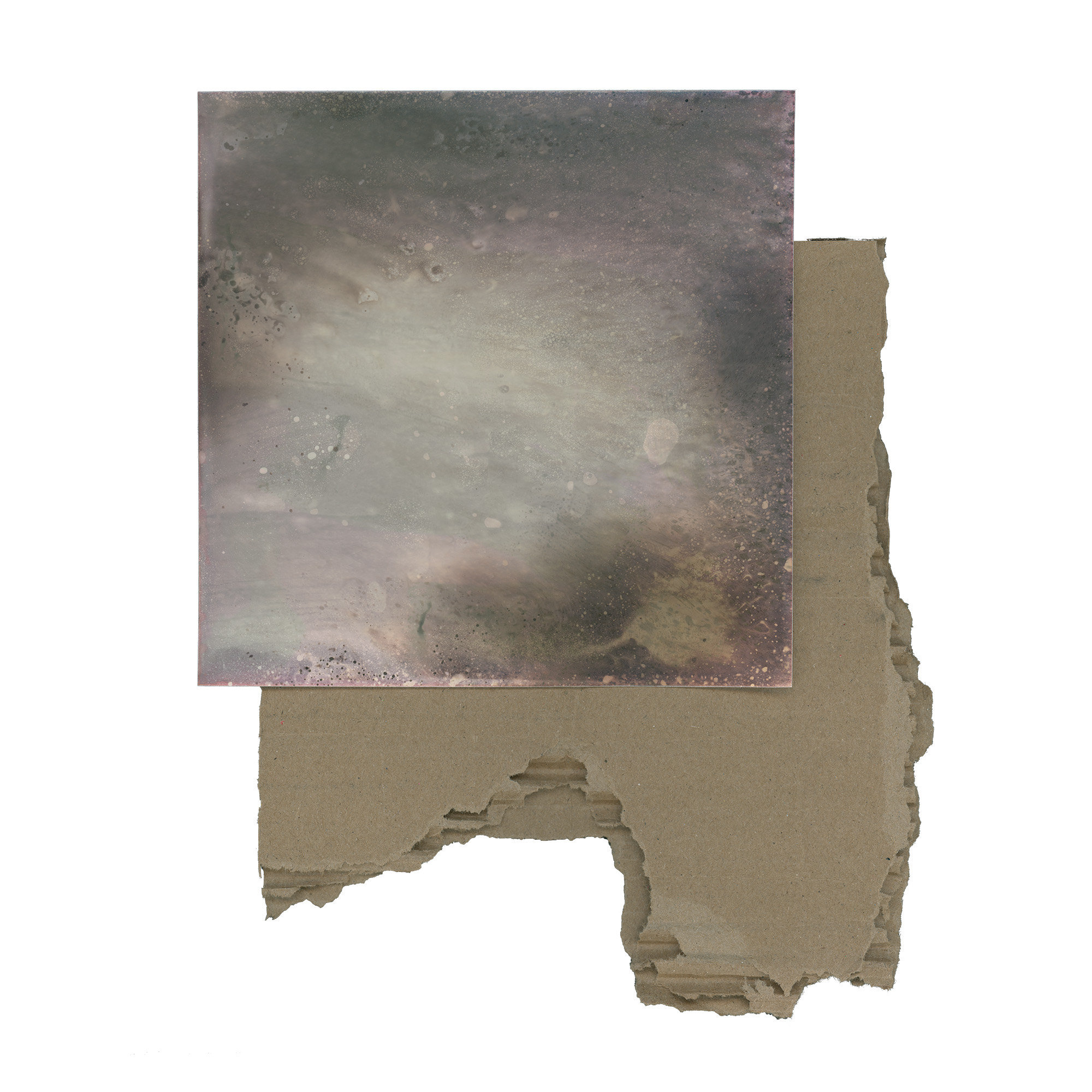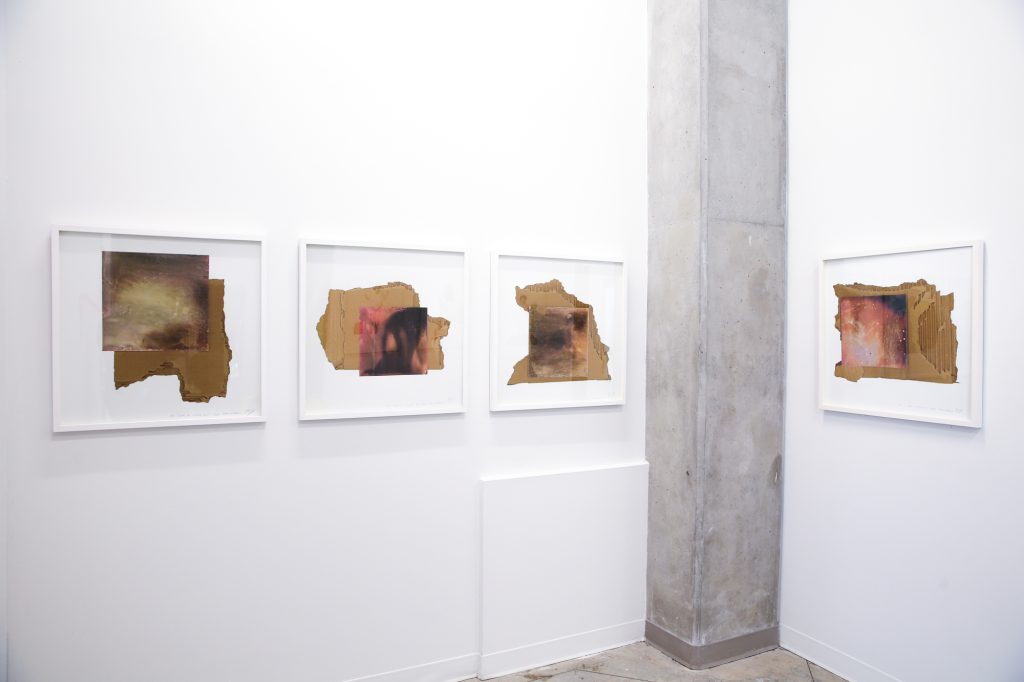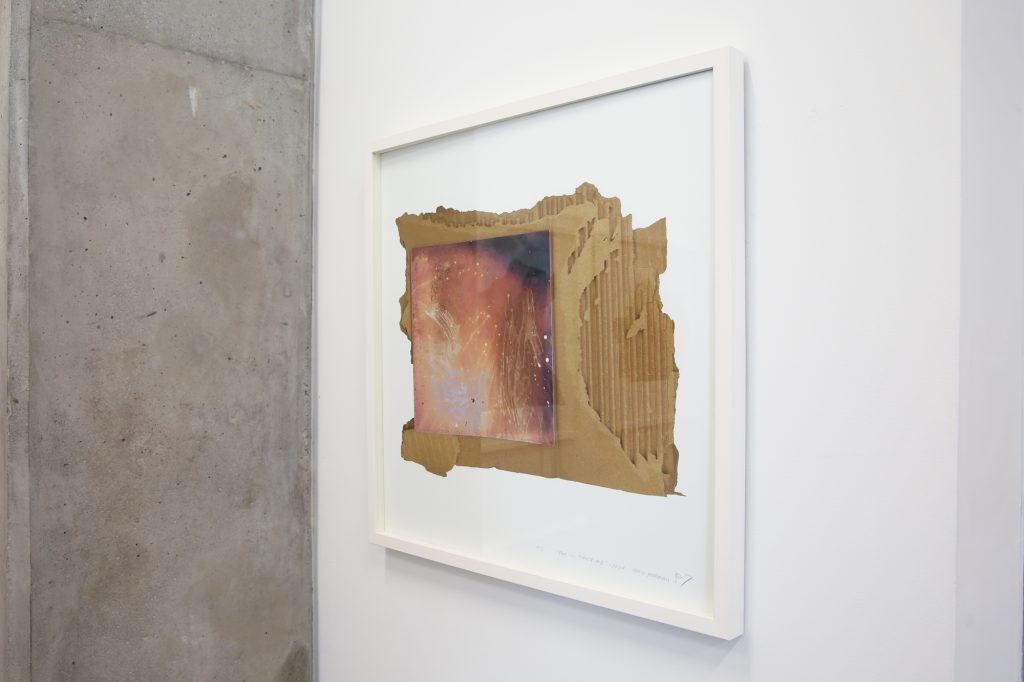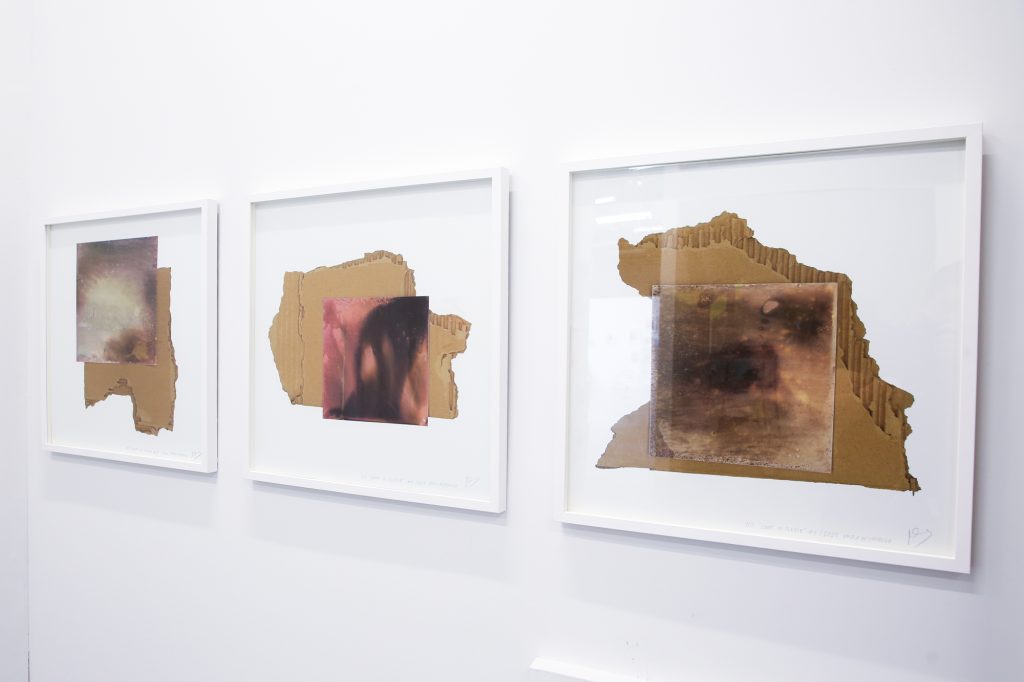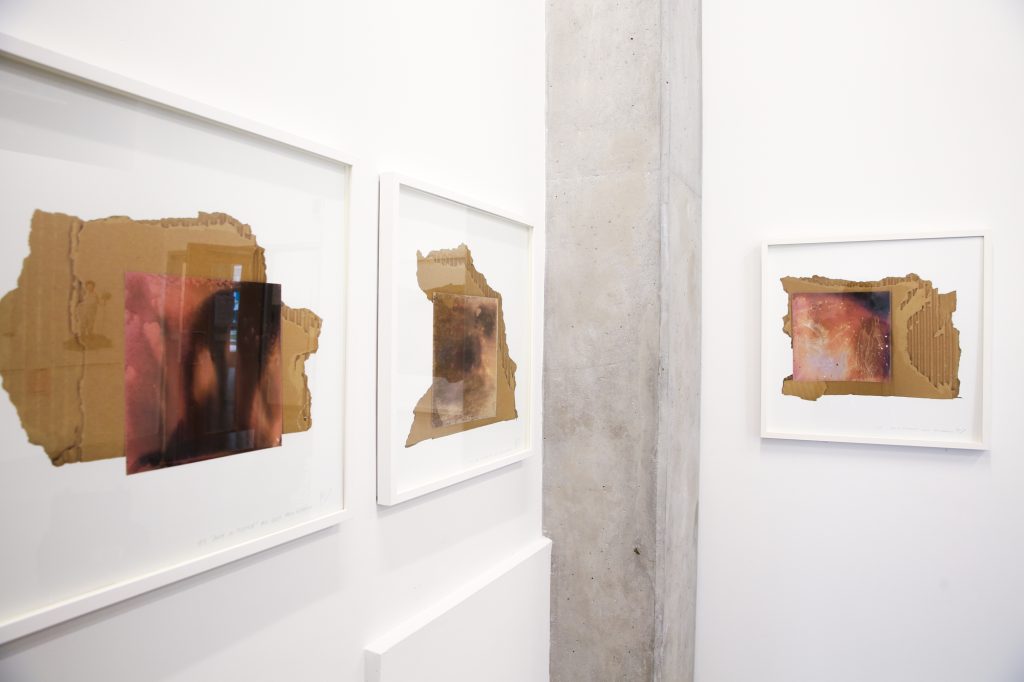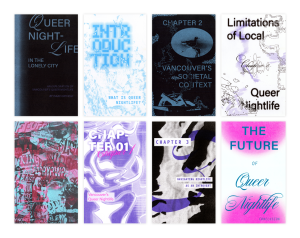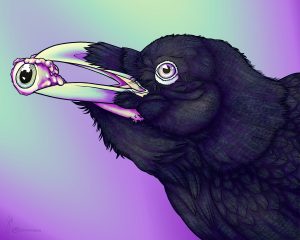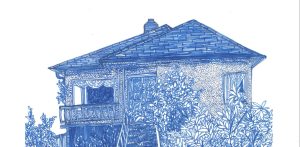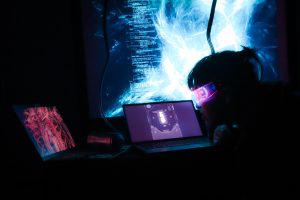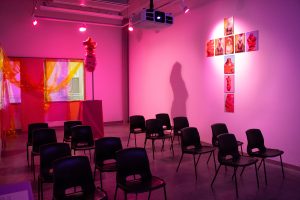Zoom in Please
Maria Michopulu
Maria Michopulu is a fourth year BFA photography student at Emily Carr University of Art and Design. Maria was born and raised in Prague, Czech Republic and is now living and working in Vancouver, British Columbia, Canada. Her interest is based in experimental and extended photography, working with the concept of secret and mystery, physical space, the possibilities of light and visuality. She is letting the viewer wonder and question what they see, only revealing a part of what is shown. Working both digitally and in the dark room, Maria is exploring how photography can provide us with information and the importance of the medium. Her work has been exhibited in Vancouver, BC and Prague, Czech Republic.
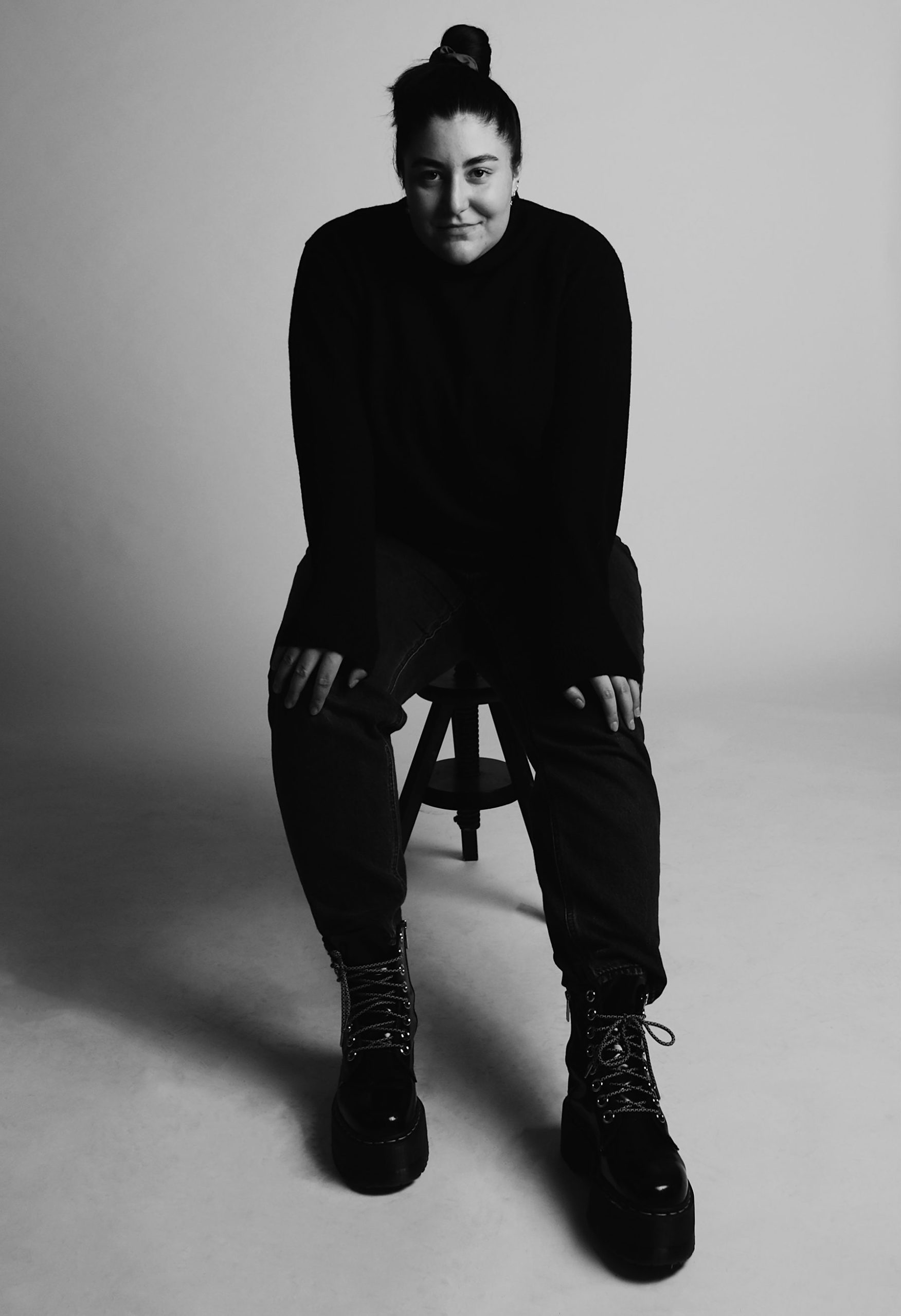
Zoom in Please, 2024
24×24 inch archival inkjet prints, mounted to aluminium, framed
Zoom in Please is a series coming from the darkroom about analogue photography practice. It is only possible to do black and white developing and tray printing in majority darkrooms today, for safety and cost reasons. However, going against the rules of those traditional processes can make it possible to achieve color on black and white paper. But only under one condition–not being able to use the fixing chemistry which locks the image in. The photograph continues living on its own, as it continues to process and becomes exposed at some point in time. What makes it intriguing is what eventually destroys it at some point.
Scanning is therefore an important photographic practice in this process. Cardboard paper, a material usually used for utility purposes, appears under the expensive precious light sensitive paper, pointing out the elite tendencies of the analogue photography practice and its history. I believe analogue photography can be used radically as any other art medium, and can be shifted and accommodated to different ideas. The same idea applies to the scanning practice, which is often undervalued in photographic work. In this work, the digital and analogue come together to enlarge and show what would otherwise be lost, defining an important principle of photography.
